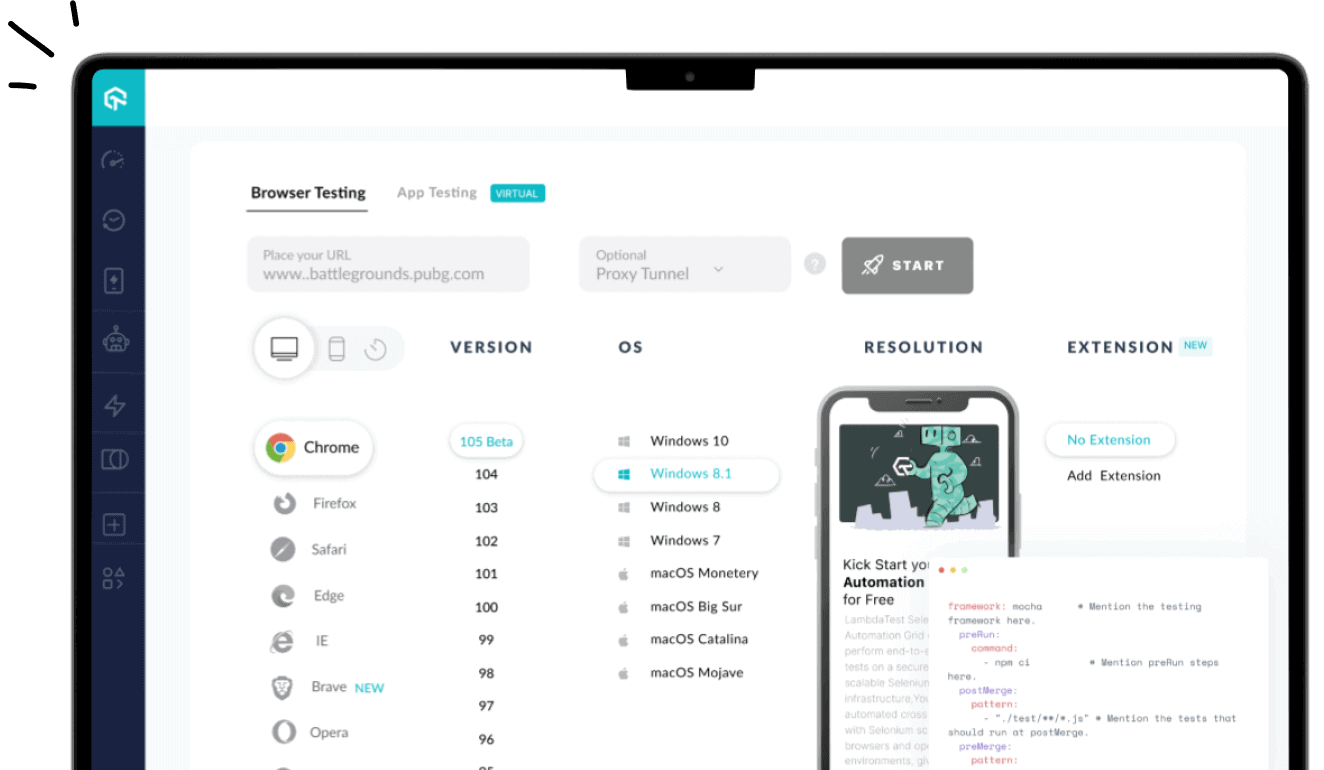Power Your Software Testing with AI and Cloud
Supercharge QA with AI for Faster & Smarter Software Testing

:has() CSS relational pseudo-class
The :has selector matches elements that include an element of a specific kind immediately inside. For example, the following rule matches elements that contain an image, i.e. .
Last updated on : 2025-11-11
Browser Versions
IE
Edge
Firefox
Chrome
Safari
Opera
Fully Supported
Partially
No Support
Specifications
Selectors Level 4 # relational
Syntax
:has( <forgiving-relative-selector-list> )Browser Compatibility
:has() CSS relational pseudo-class on IE is not supported on any IE versions.
:has() CSS relational pseudo-class on Edge is fully supported on 105-142, and not supported on 12-104 Edge versions.
:has() CSS relational pseudo-class on Firefox is fully supported on 122-147, and not supported on 2-121 Firefox versions.
:has() CSS relational pseudo-class on Chrome is fully supported on 106-145, and not supported on 4-105 Chrome versions.
:has() CSS relational pseudo-class on Safari is fully supported on 15.5-26.2, and not supported on 3.2-15 Safari versions.
:has() CSS relational pseudo-class on Opera is fully supported on 91-122, and not supported on 9.5-90 Opera versions.
:has() CSS relational pseudo-class on Safari on iOS is fully supported on 15.6-26.1, and not supported on 3.2-15 Safari on iOS versions.
:has() CSS relational pseudo-class on Android Browser is fully supported on 105-142, and not supported on 2.3-104 Android Browser versions.
:has() CSS relational pseudo-class on Opera Mobile is fully supported on 72-80, and not supported on 10-64 Opera Mobile versions.
:has() CSS relational pseudo-class on Chrome for Android is fully supported on 105-142, and not supported on 97-104 Chrome for Android versions.
:has() CSS relational pseudo-class on Firefox for Android is fully supported on 123-144, and not supported on 95-122 Firefox for Android versions.
:has() CSS relational pseudo-class on Samsung Internet is fully supported on 20-29, and not supported on 4-19 Samsung Internet versions.
Browser Support for :has() CSS relational pseudo-class
References
Data sourced from
Overall Browser Compatibility Score
Note::has() CSS relational pseudo-class shows a browser compatibility score of 82. This is a collective score out of 100 to represent browser support of a web technology. The higher this score is, the greater is the browser compatibility. The browser compatibility score is not a 100% reflection for every browser and the web technology support. However, it does give you an estimate on how much you should rely on a particular web technology in terms of browser compatibility.
Test on 3000+ browsers for :has() CSS relational pseudo-class & more
Test your website for :has() CSS relational pseudo-class and other web technologies. Get 100 FREE automation test minutes!
Test Now
More Web Technologies
- CSS
- HTML 5
- SVG
- JS API
- Security
- JavaScript
- Other Web Technologies

Start your journey with LambdaTest
Get 100 minutes of automation test minutes FREE!!
Did you find this page helpful?
